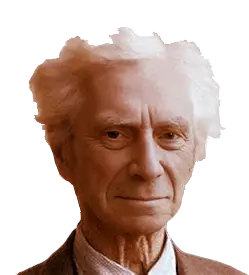Paradoxes
There are several opinions on what constitutes a paradox, and you can find several differing definitions, but, in general a paradox is either:
- a statement that appears to be correct but also appears to contradict itself, or
- a statement that appears to be correct but also appears to contradict commonly accepted opinions, or
- a statement that appears to be correct but also appears to be counter intuitive.
The apparent contradiction can almost invariably be attributed to one or more of the following:
- The ambiguity and context dependency of natural languages such as English.
- The incorrect application of a logic to a statement of natural languages such as English.
- An unproven assumption.
- Faulty intuition.
Some Paradoxes Discussed
Some paradoxes raise interesting issues and some of the more interesting ones will be discussed on this site. More may be added at a later date. Currently there are the following:
Note that this is not intended to be in any way comprehensive, since there are plenty of descriptions of paradoxes available elsewhere.
A contradictory delight in paradoxes
The response of mathematicians and logicians to paradoxes has shifted considerably since the beginning of the twentieth century.
At that time, when Bertrand Russell discovered (in 1901) his famous paradox now called Russell’s paradox, such paradoxes were viewed as intolerable contradictions that were totally unacceptable in the world of logic. Russell’s paradox marked a crisis point in logic and mathematics, and logicians and mathematicians tried, without success, to come up with a foundation of logic and mathematics that was simple and appeared intuitively to be correct.
As time progressed, however, particularly after Gödel published his incompleteness proof, the way in which paradoxes such as Russell’s paradox were viewed underwent a subtle shift. Logicians began to believe that contradictory paradoxes were an inevitable part of any comprehensive system of logic, and that one might as well learn to live with them.
So, instead of the viewpoint that was prevalent at the time of the discovery of Russell’s paradox, when the common opinion was that the source of such contradictions should be rooted out and dealt with, we now have a situation where many people (for example, Gregory Chaitin and Raymond Smullyan) take a perverse delight in such contradictions, and embrace them as desirable notions, rather than as problems to be solved. And today there seems to be an increase in the willingness of certain academics to follow this line, and to ignore any need for critical logical analysis.
But it is not only possible to eliminate such contradictions from logical language and logical analysis, it is imperative that this should be done. In fact, when it is seen that the root of most of these contradictions arise from confusion of levels of language, it is seen that the elimination of such contradictions is quite straightforward.



Rationale: Every logical argument must be defined in some language, and every language has limitations. Attempting to construct a logical argument while ignoring how the limitations of language might affect that argument is a bizarre approach. The correct acknowledgment of the interactions of logic and language explains almost all of the paradoxes, and resolves almost all of the contradictions, conundrums, and contentious issues in modern philosophy and mathematics.
Site Mission
Please see the menu for numerous articles of interest. Please leave a comment or send an email if you are interested in the material on this site.
Interested in supporting this site?
You can help by sharing the site with others. You can also donate at where there are full details.
where there are full details.